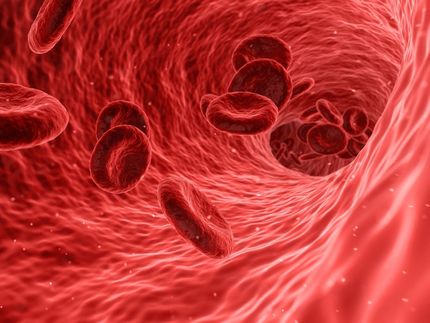Cambridge Team First to Grow Smooth Muscle Cells from Patient Skin Cells
A Cambridge University research team has for the first time discovered a method of generating different types of vascular smooth muscle cells (SMCs) - the cells which make up the walls of blood vessels - using cells from patients' skin. This work could lead to new treatments and better screening for cardiovascular disease.
Cardiovascular disease is the leading cause of death in the world. These deaths are mainly caused by the hardening and subsequent blockage of blood vessels due to the accumulation of fatty materials, a condition called atherosclerosis. As not all patients are suitable for conventional stenting or bypass treatment, an option in the future may be to grow new blood vessels to bypass their own blocked vessels.
The team from Cambridge worked with embryonic stem cells and reprogrammed skin cells, collectively known as human pluripotent stem cells (hPSCs), which have the potential to form any cell type in the body. They discovered a method of creating all the major vascular smooth muscle cells in high purity using hPSCs which can also be easily scaled up for production of clinical-grade SMCs. This is the first time that such a system has been developed and will open the door for comparative studies on different subtypes of SMCs to be carried out, which are otherwise extremely difficult to obtain from patients.
The scientists created three subtypes of SMCs from different embryonic tissues which they reproduced in the culture dish and showed that the various SMC subtypes responded differently when exposed to substances that cause vascular diseases. They concluded that differences in the embryonic origin play a role in their susceptibility to diseases and may play a part in determining where and when common vascular diseases such as aortic aneurysms or atherosclerosis develop.
Dr Alan Colman, Principle Investigator of the Institute of Medical Biology under A*STAR and Executive Director of the Singapore Stem Cell Consortium, said, "This is a major advance in vascular disease modelling using patient-derived stem cells. The development of robust methods to make multiple, distinct smooth muscle subtypes provides tools for scientists to model and understand a greater range of vascular diseases in a culture dish than was previously available. It is a significant stride forward in being able to construct new blood vessels which will benefit a whole range of patients including those with cardiovascular diseases, renal failure and genetic disorders such as Marfans Syndrome that affect the normal function of their blood vessels."
Original publication
Christine Cheung, Dr Andreia S Bernardo, Dr Matthew W B Trotter, Prof Roger A Pedersen & Dr Sanjay Sinha; "Generation of human vascular smooth muscle subtypes provides insight into embryological origin-dependent disease susceptibility"; Nature Biotechnology.
Most read news
Original publication
Christine Cheung, Dr Andreia S Bernardo, Dr Matthew W B Trotter, Prof Roger A Pedersen & Dr Sanjay Sinha; "Generation of human vascular smooth muscle subtypes provides insight into embryological origin-dependent disease susceptibility"; Nature Biotechnology.
Topics
Organizations
Other news from the department science

Get the life science industry in your inbox
By submitting this form you agree that LUMITOS AG will send you the newsletter(s) selected above by email. Your data will not be passed on to third parties. Your data will be stored and processed in accordance with our data protection regulations. LUMITOS may contact you by email for the purpose of advertising or market and opinion surveys. You can revoke your consent at any time without giving reasons to LUMITOS AG, Ernst-Augustin-Str. 2, 12489 Berlin, Germany or by e-mail at revoke@lumitos.com with effect for the future. In addition, each email contains a link to unsubscribe from the corresponding newsletter.





















































